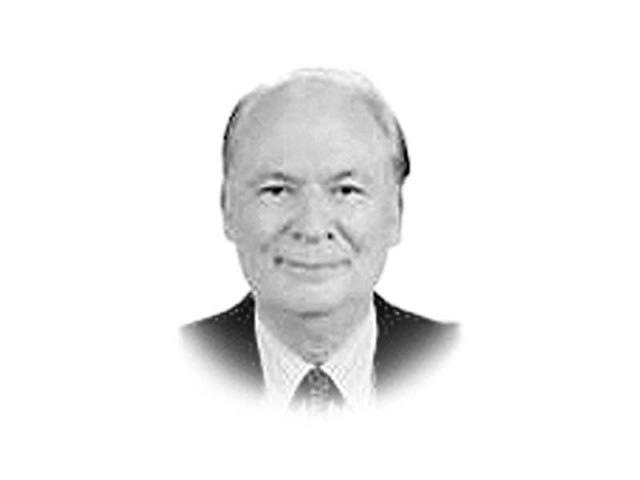When Obama and Putin crossed swords at the UN
Putin is making a lot of sense & I suspect that deep down President Obama and David Cameron know that Russia is right

anwer.mooraj@tribune.com.pk
Barack Obama was his usual self as he conjugated the rigours of his calling. He is a good extempore speaker with excellent narrative skills and listeners often hang onto his every word as if it had floated down from Mount Olympus. Each sentence of his address is usually delivered with headline-reading brevity. In the UN session, he spoke slowly and deliberately as is his custom, without notes, and paused, perhaps to let the translators from Thailand and Egypt absorb the import of what he had to say. But this time he was involved in a verbal duel with Putin, the Russian leader who has a reputation for standing by his friends and allies. He had come to set the record straight and was ready to engage in a verbal duel.

After plumbing the depths of the Syrian crisis, Putin harshly criticised American policy in the Middle East and elsewhere. However, not having been groomed and moulded in the cosy, chintzy, polite vernacular of the Western establishment, his speech appeared to have been written with a chisel rather than a quill. After reviving Russia’s historic role in the Middle East, he called for a new broad coalition to fight the Islamic State (IS). And the only way to do this is to strengthen the hand of Syrian President Bashar al Assad and to organise a new Syrian peace conference to be attended by a “contact group” of outside powers, including Russia and the United States, as well as regional powers such as Saudi Arabia, Qatar, Turkey and Iran. The latest we heard in our neck of the woods was that Russian war planes were pounding the rebels fighting the Syrian Army and that Iranian troops had entered Syria.
Frankly, I think Putin is making a lot of sense and I suspect that deep down President Obama and David Cameron know that Russia is right. The IS is a danger, not just to Western democracies, but also to the Middle East, Russia, Saudi Arabia and the Gulf Emirates. This is no local skirmish. This is a war being fought between a coalition of powers that believe that battles should be fought from the air and not on the ground — and a force that is savage and brutal and merciless, but fearless in battle, like the Japanese foot soldier in the Second World War. A force fueled by an ideal. And so the Syrian refugees continue to pour into eastern Europe and the Hungarians and Romanians continue to expel them. As a tailpiece, I would like to quote from my favourite journalist Roger Cohen of The New York Times, who in a recent column wrote, “Being part of Stefan Zweig’s ‘community of expulsion’ Jews cannot now turn their backs on the expelled.” Of course, this was written in a completely different context but I would like to think that a humanist like him also had the Syrian refugees in mind. The Syrians and the Palestinians are not the real problem for Israel. But the IS jolly well could be. It is only a matter of time.
Published in The Express Tribune, October 4th, 2015.
Like Opinion & Editorial on Facebook, follow @ETOpEd on Twitter to receive all updates on all our daily pieces.














COMMENTS
Comments are moderated and generally will be posted if they are on-topic and not abusive.
For more information, please see our Comments FAQ